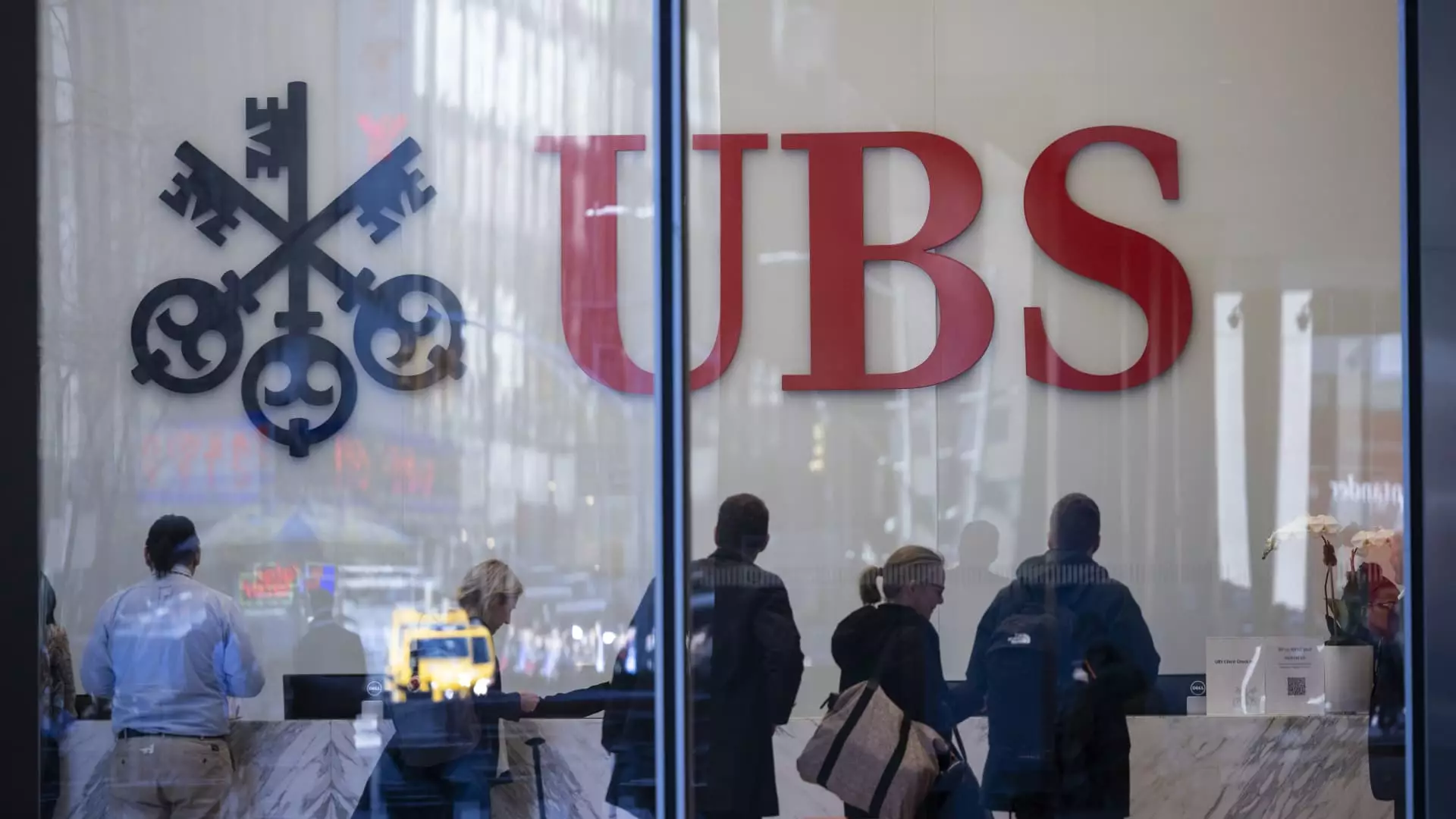In a remarkable display of financial resilience, Swiss banking giant UBS has reported a substantial profit that far exceeds market expectations, following its challenging integration of Credit Suisse. The bank’s latest performance reflects not just a rebound but a strategic adaptation to the turbulent waters of global finance, raising both hopes and challenges for its future.
UBS’s third-quarter earnings showcased a net profit attributable to shareholders of $1.43 billion, eclipsing the average forecast of $667.5 million gathered from analysts’ predictions. This impressive outcome speaks volumes about UBS’s capacity for recovery and growth amidst adversity. Group revenue reached $12.33 billion, significantly surpassing analyst projections of around $11.78 billion. Such results indicate a strong operational framework built to withstand financial shocks, a crucial trait in an industry currently grappling with volatility.
The operational efficiency of the bank is reflected in its operating profit before tax, rising to $1.93 billion—dramatically improving from a loss of $184 million in the same quarter the previous year. Notably, the return on tangible equity surged to 7.3%, a striking contrast to the 5.9% reported in the prior quarter. These figures illustrate a revitalized and robust bank working judiciously to regain its foothold in the competitive financial landscape.
The results of the bank’s Investment Banking division deserve special mention, as it demonstrated a remarkable 36% year-over-year increase in net income. This achievement can be attributed primarily to the department’s successful handling of equity derivatives, foreign exchange, and interest rate revenues. Such growth is particularly impressive given that investment banking is often subject to unpredictable swings in market conditions.
However, not all segments of UBS’s operations enjoyed similar success. Global Wealth Management reported a 6% decline in revenues year-over-year, attributed to squeezed deposit margins and lower loan revenue resulting from decreased average volumes. This decline raises questions about the bank’s ability to maintain its diverse income streams in the face of shifting market conditions.
As UBS moves forward, it plans to complete a substantial $1 billion share buyback program by the end of this year, demonstrating a commitment to returning value to shareholders. Furthermore, the bank aims to sustain this momentum with ongoing repurchases scheduled into 2025. These fiscal maneuvers could enhance shareholder confidence, especially after absorbing the weight of Credit Suisse’s merger.
Yet the merge’s aftermath presents substantial operational hurdles. The integration of Credit Suisse’s IT systems remains a critical task, with the client migration process expected to span approximately 18 months. Recent reports indicate that UBS has successfully transitioned Global Wealth Management accounts in Luxembourg and Hong Kong, with intentions to extend this integration to its accounts in Singapore and Japan by the end of the year. Executing these migrations seamlessly is pivotal for the bank; failure could dim the heavy investments made in the merger.
CEO Sergio Ermotti faces an intricate landscape marked by geopolitical instability, fluctuating interest rates, and the urgent need to match the lofty profit margins of U.S. financial powerhouses like Goldman Sachs and Morgan Stanley. Amidst these challenges, UBS operates within a surprisingly robust domestic economy characterized by a strong Swiss franc and minimal inflation, which could influence liquidity and profitability patterns across the banking sector.
The bank’s statements reflect a cautious optimism as it assesses market conditions. UBS noted strong client activity in the third quarter against a backdrop of high volatility, stating it anticipates continued tumultuous economic conditions driven by international conflicts and imminent U.S. elections. Such markers suggest that the journey ahead will require dexterity and vigilance to navigate unpredictable investor behavior.
UBS’s recent earnings report signals a turnaround for the institution post-Credit Suisse’s fallout. While positive trends in profitability and segmental growth shine a light on their potential resurgence, the challenges linked with integration and the broader economic environment cannot be overlooked. As UBS ventures deeper into 2025, its strategic adaptations will be critical to not only retain but enhance its standing in an increasingly complex financial world.


Leave a Reply